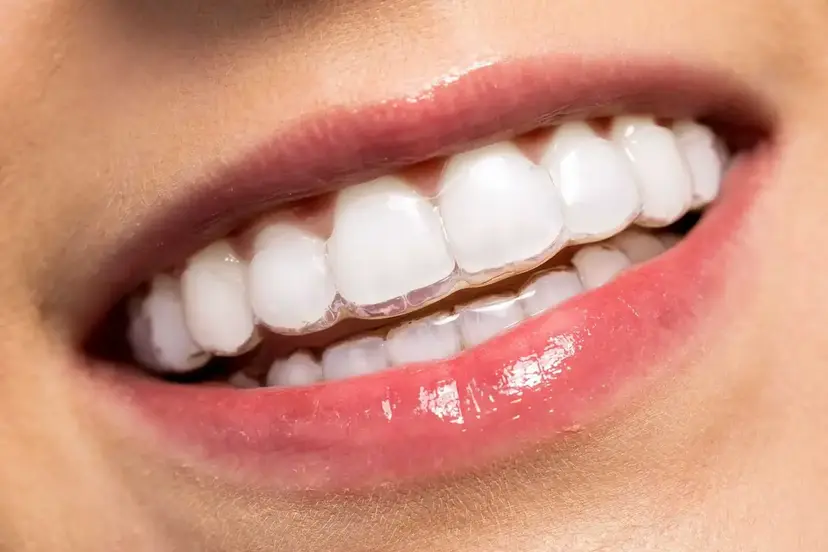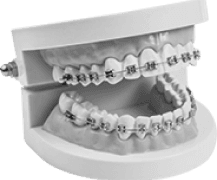MakeO blog
Canker sores, also known as mouth ulcers, affect millions of people globally. Mouth sores and ulcers can appear on the tongue, inside the cheeks and on the gums, making it difficult to eat, drink and even talk. They are small, painful lesions that occur inside the mouth. If you have had them, you know how painful and uncomfortable they are. But worry no more as this blog will give you all the information you need about mouth ulcers. From causes to symptoms and even treatments, this blog can be your ultimate guide for all things mouth sore and ulcers.
Stay tuned to the end of the blog to know how you can elevate your oral care routine with makeO toothsi by your side.
Causes of Canker Sores
There is no single cause behind the development of canker sores. However, various factors can contribute to their occurrence.
1. Minor injuries
Accidentally biting the inside of your cheek, dental work or even braces can cause small injuries that may lead to canker sores.
2. Food sensitivities
Acidic and spicy foods can irritate the mouth's lining, making it prone to mouth ulcers. Some individuals may also have allergies to specific foods that trigger canker sores.
3. Nutrient deficiencies
A lack of essential nutrients like vitamin B12, iron and folic acid can contribute to the development of canker sores.
4. Hormonal changes
Fluctuations in hormone levels during the menstrual cycle or due to stress can increase the likelihood of mouth ulcers
5. Underlying medical conditions
Conditions such as celiac disease, Crohn's disease and autoimmune diseases can be associated with the occurrence of canker sores.
6. Genetic predisposition
Some individuals may have a genetic predisposition to developing mouth sores and ulcers more frequently.
Symptoms of Canker Sores
- Canker sores typically look like round or oval-shaped lesions with a white or yellow centre and a red border.
- They cause pain and discomfort, especially while eating, drinking or talking.
- In some cases, they may also cause swelling and inflammation.
The frequency and duration of canker sores can vary from person to person. If you experience persistent, large, spreading, or severely painful canker sores, it is essential to consult a doctor for a proper diagnosis.
Diagnosis of Canker Sores
A healthcare professional can usually diagnose a canker sore by examining the lesion. In some cases, the doctor might feel the need to examine the lesions for better diagnosis. It is essential to see a doctor if the condition persists, returns or gets worse as this may be an indication of an underlying disease.
Treatment Options for Canker Sores
While there is no specific cure for canker sores, several treatment options can help alleviate the pain and discomfort associated with them. Some common treatment options include:
- Over-the-counter mouth ulcer treatments
- Prescription medications
- Common home remedies like salt water rinses or applying honey to the affected area
Maintaining proper oral hygiene can prove to be a help in preventing the formation of canker sores. You can try out the Electric Toothbrushes from makeO toothsi that have super soft bristles, allowing a gentle action on the mouth. makeO toothsi also offers a range of other innovative oral care products such as a Teeth whitening kit, Smart water flosser and even Clear aligners for teeth alignment. Visit your nearest makeO toothsi centre or check out our website for more information about our products and services.
Conclusion
Canker sores are a common but painful oral health issue that affects many individuals. Understanding their causes, symptoms and available treatment options is crucial for maintaining good oral hygiene and overall well-being. Incorporating makeO toothsi dental care products and adopting healthy oral care practices can significantly reduce the risk of canker sores and ensure a healthy and confident smile.
FAQs
What is the difference between a canker sore and a cold sore?
A canker sore (mouth ulcer) occurs inside the mouth, while a cold sore typically appears on or around the lips. Cold sores are caused by the herpes simplex virus, whereas canker sores are not contagious.
Are canker sores contagious?
No, canker sores are not contagious, as they are not caused by an infectious agent like a virus or bacteria.
How long do canker sores typically last?
Canker sores usually last for 7-10 days, but in some cases they may persist for up to two weeks.
Can stress cause canker sores?
Yes, stress can contribute to the development of canker sores due to hormonal imbalances and weakened immune system responses.
How can I prevent canker sores?
To prevent canker sores, maintain good oral hygiene, use a soft-bristled electric toothbrush, avoid trigger foods and ensure a well-balanced diet rich in essential nutrients. Make sure to address any underlying medical conditions and manage stress effectively.
related categories
Related articles

Types of Braces: Removable vs Fixed Braces, Which is Right For You?

This Diwali, Smile Bright With makeO Teeth Whitening Kit

Dr. Pravin Shetty: Pioneer in Lingual Orthodontics & Innovative Smile Solutions
How do I Know I’m the Right Candidate for makeO toothsi Teeth Aligners?

